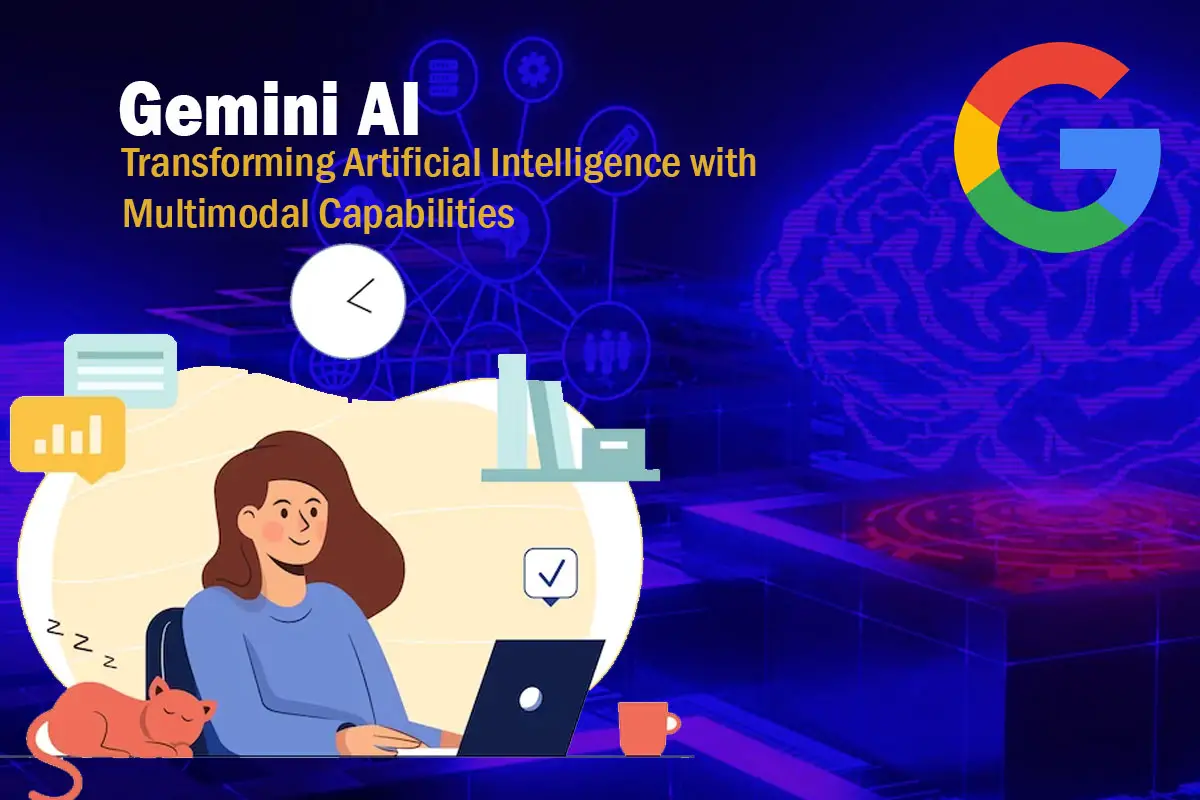Gemini AI, developed by Google, is an innovative artificial intelligence system that is set to redefine the capabilities of AI technology. With its focus on tool and API integrations and a vision for future advancements, Gemini AI aims to surpass existing AI systems like ChatGPT by OpenAI. Inspired by AlphaGo’s groundbreaking achievement in the complex game of Go, Gemini AI combines the problem-solving abilities of AlphaGo with the vast language modeling capabilities to create a powerful AI system. In this article, we will explore the features, potential applications, and the impact of Gemini AI on the field of artificial intelligence.
Understanding Gemini AI’s Multimodal Approach
Gemini AI stands out by adopting a multimodal approach to data processing. Unlike traditional AI models that specialize in handling specific types of data, Gemini AI excels at efficiently processing different data types. This versatility allows Gemini AI to comprehend entire pages of text, including signature blocks and document stamps, by utilizing cutting-edge computer vision technology. By harnessing the power of computer vision, Gemini AI achieves a deeper understanding of textual content, enabling it to extract valuable insights and information.
The Power of Reinforcement Learning
At the core of Gemini AI lies reinforcement learning, a technique where software undergoes iterative attempts to solve tasks while continuously adjusting its approach based on feedback. This dynamic process empowers Gemini AI to improve its performance over time, making it a powerful and adaptive system. By leveraging reinforcement learning, Gemini AI becomes more proficient in problem-solving and planning, enhancing its overall capabilities.
Gemini AI: Enabling Future Innovations
Gemini AI is not just a standalone system; it serves as a foundation for future advancements in artificial intelligence. Google envisions Gemini AI as a next-generation model that surpasses the capabilities of ChatGPT and paves the way for collaborative efforts through tool and API integrations. As Google continues to refine Gemini AI, it aims to accommodate future developments, including improved memory and planning. This forward-thinking approach ensures that Gemini AI remains at the forefront of AI innovation.
Applications of Gemini AI
Title Plant Verification: Gemini AI utilizes machine learning and prior/future recordings to verify and self-approve title plant entries. This streamlines the title verification process, ensuring accuracy and efficiency in real estate transactions.
Data Analysis: With its ability to process various types of data, Gemini AI empowers businesses to analyze vast amounts of information rapidly. By leveraging artificial intelligence and machine learning, Gemini AI assists in deriving actionable insights, facilitating data-driven decision-making.
AI Services: Gemini AI underpins a range of Google’s AI services, including the widely used Duet AI in Workspace apps and the popular Bard chatbot. These services benefit from Gemini AI’s advanced algorithms and multimodal capabilities, enhancing user experiences and interactions.
Customer Service: With its natural language processing capabilities, Gemini AI is an ideal tool for customer service applications. By understanding user intent and responding to queries in a multimodal manner, Gemini AI offers personalized and efficient customer support.
Conclusion
Gemini AI represents a significant advancement in artificial intelligence, driven by its multimodal capabilities, reinforcement learning, and integrative approach. With the potential to outperform existing AI systems and a broad range of applications, Gemini AI is poised to revolutionize various industries. As Google continues to develop and refine this groundbreaking technology, we can expect Gemini AI to unlock new possibilities and reshape the future of artificial intelligence.

